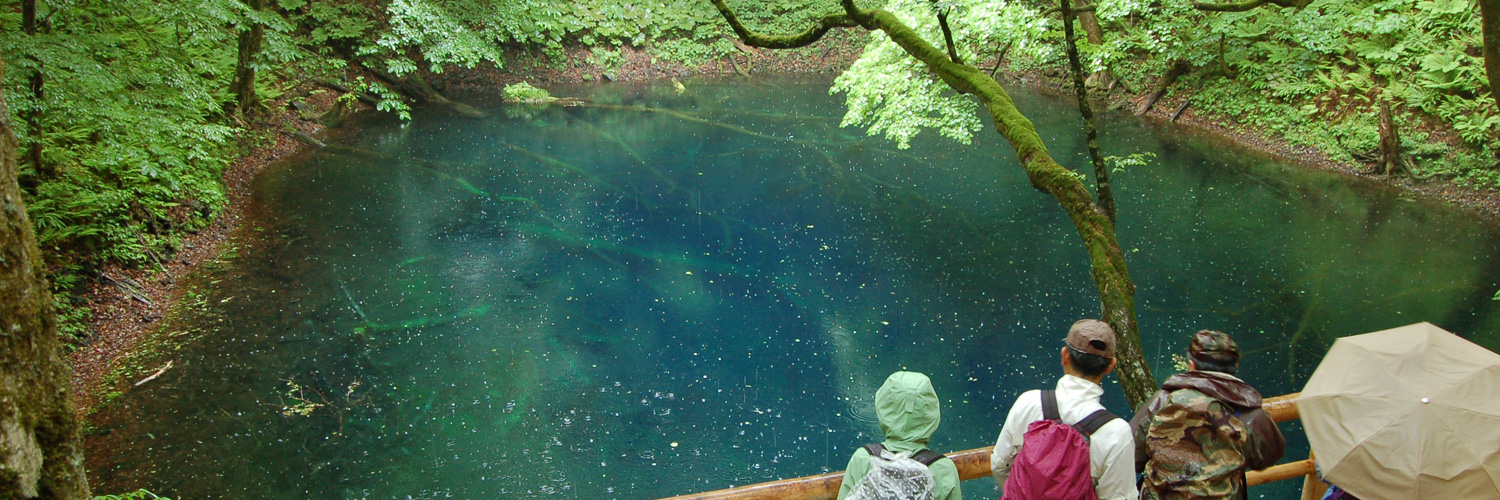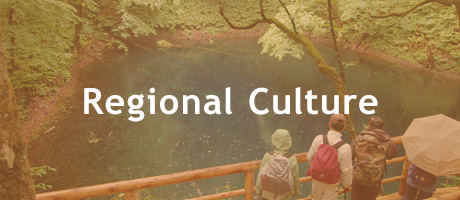
Elective subjects
Social Dynamics of LocalityHirai, Taro
This course investigates the practice and ideal of community in Japanese peripheral area, asking students to engage in specific projects aimed at strengthening the public sphere and fostering community life. This course will pay particular attention to the struggles of depopularised communities. Coursework will include contemporary and historical case studies.
Protection and Utilization of Buried Cultural PropertiesSekine, Tatsuhito
We meet examples and investigate the problems about research, protection and utilization of buried cultural properties which account for big weight in cultural properties protection administration. In addition, we pursue better directionality how we plan adjustment of local promotion and the protection of buried cultural properties.
Folk Culture and “Region”Yamada, Itsuko
This course aims to develop research methods from a new perspective by critically examining folk studies related to the Tohoku region of Japan.
Media culture studiesHabuchi, Ichiyo
First, if we study our media society, it is necessary to know the history of media and media studies, and to understand the developments of new technology and the usage. Secondly there is one other thing that is important for experimental methods to approach an object of study. My class forces on fieldwork and the social survey methods and our discussion of media social theories.
History of Japanese Religious Culture and Local CommunitiesHara, Katsuaki
Through research and study of the written materials (sacred texts and classical books) handed down in temples and shrines in the Tsugaru region, we will examine the history of religion and culture, and consider measures for preservation and utilization of the materials.
Regional dialects and grammatical descriptionNiinaga, Yuto
Students aim to acquire fundamental knowledge and concepts necessary for writing a comprehensive descriptive grammar of dialects. In the class, we will read and analyze overviews of the grammar of dialects from various regions of Japan, and students will focus on specific phonological or grammatical phenomena of the dialects they are studying, describe them, and present their findings.
Soundscape Studies: Interdisciplinary PerspectivesImada, Tadahiko
The concept of soundscape, proposed by the Canadian composer R. Muray Schafer, can be considered as the idea of perceiving various the sound of nature, artificial sounds of cities and out of cities, sounds of the day and night, and music, for example, as total scenery. Soundscape studies is also a method of research that not only conceives of sounds as physical objects, but is concerned with what kind of sounds people are hearing, and what their values are in interpreting particular areas as of sound. Referring music, education, other arts and the environment, this lecture attempts to contribute to that discourse.
Special lecture for dynamics of earth surface environmentKoiwa, Naoto
This lecture introduces to the relationship between the geomorphological features and human life in the Nishitsugaru area from the viewpoint of physical geography. Students obtain knowledges by field observation about as follows; (1) geological and geomorphological development of the Shirakami mountains which have one of the highest uplift rates in Japan, (2) the development process of marine terraces and river terraces formed by the repeated climate change of about 100,000 years, (3) relationship between physical environment and the human life that is carried out there.
Regional plant physiology and ecologyKatsukawa, Kenzo
The origins of plant communities in the Tsugaru region, including the Shirakami Mountains, and their relationship to human activities are examined. The life histories of several perennial plant species are examined in detail to clarify the life histories of plant communities. The nature of their conservation is discussed.
Modern and Contemporary Japanese History and Regional HistoryOhtani, Shinji
Students will read research books related to modern and contemporary Japan and the region.
In 2022, we plan to read literature related to the cultural theories during and after World War II. (However, the literature may be changed depending on the interests of the students.)
Seminars
SeminarsHirai, Taro
This course introduces students to action research as a method of improving regional studies. Students will gain hands-on experience doing research in local communities. The course will explore the relative strengths and potential challenges of different approaches to regional studies, as well as ethical issues. All students will be trained on how to ethically conduct research involving human subjects.
SeminarsSekine, Tatsuhito
We think about how we should make use archaeology documents in the display,display commentary books, and display pictorial records at Archaeological Research Center For Northern Japan, Hirosaki University. Let’s learn the effective public method of the archaeology document in a practical experience.
SeminarsYamada, Itsuko
This course aims to build a model that will advance understanding of folk religions from daily life and culture in Tohoku region of Japan.
Media studies seminarHabuchi, Ichiyo
The media surrounding us, new media technology and media communication effect on new social matter. We discuss about Japanese behavior for new media contexts in our seminar. We can examine these fundamental questions.How are media studies made on? What impact are media having on Japanese society? What types research is possible to know our media society?
SeminarsHara, Katsuaki
Students will deepen their research through literature reading, survey exercises, and report reviews in line with their own themes related to religion, history, and culture in Aomori Prefecture.
SeminarsNiinaga, Yuto
I will provide guidance on selecting a topic for your doctoral dissertation, as well as advice on research and analysis methods. Additionally, I will offer instruction on the fundamental rules of writing. Activities will include reading relevant literature to examine the overarching structure of dissertations, focusing on comprehensive grammar description and specific themes within the grammar.
Doctoral SeminarImada, Tadahiko
The main thrust of the seminar concerns the concept of soundscape, which was proposed by the Canadian composer R.
Murray Schafer, as an apparatus of making visual and performing arts. The objective of this course is to develop the student’s knowledge, understanding of how musicians and visual artists in both historical and contemporary praxis, have used their own artistic ways of thinking in response to soundscape. The following aspects in today’s visual and performing arts will be practiced and discussed: 1) Soundwalk; 2) Keynote Sounds; 3) Sound Signal; 4) Soundmarkd; 5) Graphic Score; 6) Art Project; 7) Universal Design in Music.
SeminarsKoiwa, Naoto
In this seminar, participants will carefully read the papers on geomorphology in Nishitsugaru area and discuss the significance and problems of the research. In addition, the field survey will be conducted after reading the topographic map of the survey area and interpretation of the aerial photographs. In the field survey, students will learn geomorphological and geological survey methods, and organize and analyze the samples collected by field survey in laboratory. The purpose of this seminar is to objectively evaluate previous study by students through these tasks.
SeminarsKatsukawa, Kenzo
Conduct field surveys and indoor analysis of vegetation found in the Tsugaru region, including the Shirakami Mountains. Understand the flowering physiology, reproduction, and ecology of monocarpic- and polycarpic-perennial. Consider how they should be conserved.
SeminarsOhtani, Shinji
Students will read literature and deepen their understanding of methods of research on modern and contemporary Japanese history.
In 2022, we plan to read literature on media history. (However, the literature may be changed depending on the interests of the students.)
Special lectures
Special lecturesHirai, Taro
This course prepares the student to do regional studies using a variety of disciplines. The course material encompasses both quantitative and qualitative methods in the discussion of the basic components of the regional studies proces. In addition to action research techniques, the course also acquaints the student with critical issues in the philosophy of science, ethical questions, and how to write a research result.
Special lecturesSekine, Tatsuhito
We consider the local activated actual situation and problems utilized various cultural assets for an example in Masakicho, Hokkaido.
Special lecturesYamada, Itsuko
We will review written folk records of the past and analyze the environment surrounding them in order to establish methodology to describe folklore in the present day.
Special lecturesHabuchi, Ichiyo
Special lecturesHara, Katsuaki
Systematize the results of the student’s thematic research on religion, history, and culture in Aomori Prefecture, and standpoint and discuss them from an academic perspective.
Individual researchNiinaga, Yuto
Students will begin writing an actual descriptive grammar book for the dialects and consult with teachers regarding its content. Initially, students will determine the overall structure (headings for each chapter), and then proceed to write one chapter at a time, discussing its content with teachers along the way.
Directed Individual StudiesImada, Tadahiko
Directed Individual Studies examines various issues surrounding the arts, using keywords such as soundscape,
music, music education, the body and philosophy.
Special lecturesKoiwa, Naoto
In this lecture, students will find problems in preivious studies in the research area selected by the students,and it also enhances the development student’s skills to solve the problems by using the geomorphological survey and analysis methods learned in the seminars.
Special lecturesKatsukawa, Kenzo
Themes are chosen, experimental designs are drawn up and practiced. Select the monocarpic- and polycarpic-perennial of your choice. Conduct field research by regularly visiting its native vegetation to determine its life history. Determine the flowering physiology and reproduction of the plant.
Special lecturesOhtani, Shinji
The content of the program will be discussed in consultation with the supervised students according to their
research content and progress. Guidance will be given on research themes, research methods, research methods, and methods of writing papers.







